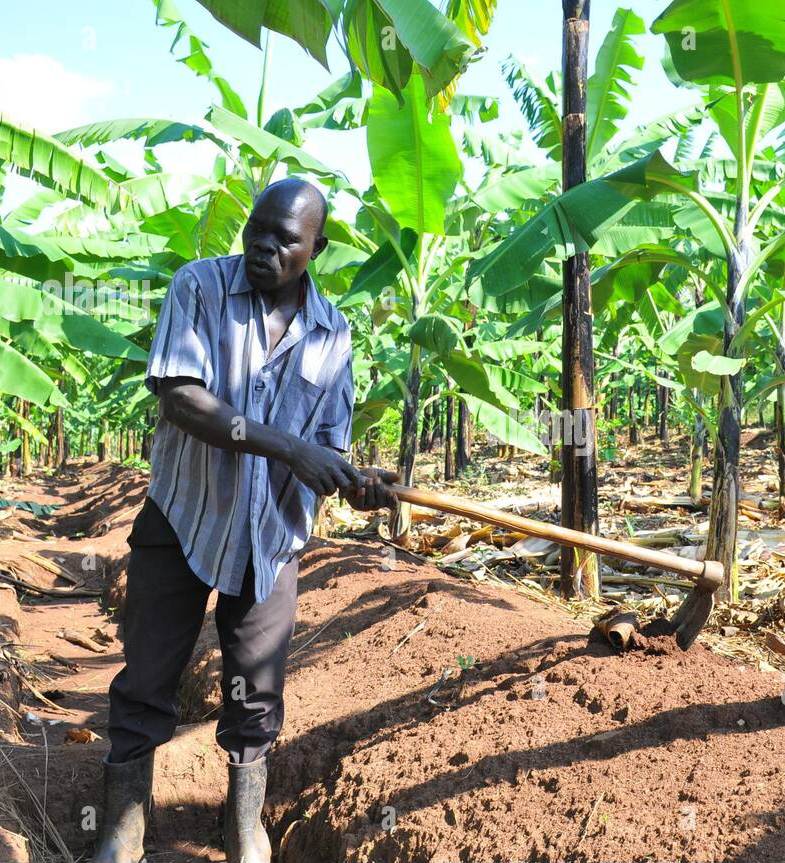Eastern and Southern Africa Small Farmers Forum (ESAFF) Uganda has organized the 5th National Organic Week (NOW) 2023 which will aim at informing the wider public about the importance of organic farming and consumption of organically produced foods.
NOW is also aiming at encouraging the uptake of organic farming practices among small-scale farmers. Therefore, this year’s theme will be focusing on the promotion of Agroecological farming techniques and healthy foods. The event is to run from the 25th of September 2023 to the 29th of September 2023.
The Week is also intended to increase awareness of Agroecological farming production systems and accelerate the uptake of these in the wider farming community, positioning indigenous seed varieties as the best adaptation strategy to address the impacts of climate change.
Through this week, there will also be a platform for dialogue between policymakers and small-scale farmers on how to sustain organic and biological farming methods that produce products that directly meet the agricultural and environmental challenges.
According to Andrew Adem the National program manager of ESAFF, farmers that use Agroecology methods of farming together with the Government have organized many public awareness activities that will be carried out across the country and these activities are aimed at creating more awareness about Agroecology.
The week-long event will be celebrated in Soroti, Gulu, Masaka, Lira, Amuru, Amuria, Adjumani, Kisoro, Kasese, Mbale, Kamuli, Jinja and Mityana and will include community dialogues, radio talk shows, engagement with Agroecology Clubs in Schools and the 5th National Organic Dialogue as the climax event.
Why Organic farming
In Uganda, the Agricultural sector plays a big role in supporting the economy because it employs the largest population. However, despite the various economic values it brings, it is one of the contributors to global challenges such as climate change due to poor farming methods, especially large commercial farmers who over-depend on Inorganic farming inputs such as fertilizers, and pesticides among other inputs.
Research has shown that the use of Inorganic farming inputs such as fertilizers and pesticides has resulted in the production of unhealthy Agricultural products to consumers. That is to say, many products from such farms are toxic because they are contaminated with the inorganic toxic residues.
Therefore, to avert such scenarios, there’s, need for the players in the sector especially small and large holder farmers to adopt farming practices that are environmentally friendly such as Agroecology farming practices.
Research has also clearly shown that Agroecology farming practices can be the only solution to avert challenges that are associated with over-dependence on inorganic farming inputs.
According to Hakim Baliraine the Chairperson of Eastern and Southern Africa Small Farmers Forum (ESAFF), the system has the potential to support the production of organic Agricultural produces in the Country and once it has been done many farmers will stand chance to benefit a lot from the adaptation of Agroecology farming practices.
“All the sector players need to up and support the small-scale farmers to adopt the practice that is when we shall have quality food on the market and this will improve the consumers’ Health” he said.
Mr Baliraine added that they are going to use the week as their vehicle to share farming experiences related to organic farming practices and teach the masses the benefits of using organic farming methods.
“Since 2019, ESAFF Uganda has been organizing the National Organic Week to raise awareness among the public on the consumption of organic products and the contribution of organic farming and Agroecology in combating the climate,” he said.
However, despite the move to create more awareness, there is still a lot to be done for smallholder farmers to adopt this method of farming because most of them are not aware of it.
As a way of increasing the scope of the awareness drive, National Organic Week is where the sector plays will converge and share experiences on the best organic farming practices.
Agroecology methods of farming
Agroecology is the practice of combining trees and farming; it demonstrates how food production and nature can co-exist.
Using these methods of farming helps to mitigate climate change by reducing emissions, recycling resources and prioritizing local supply chains.
They also help to work with wildlife by managing the impact of farming on wildlife and harnessing nature to do the hard work such as pollinating crops and controlling pests.
They also put farmers and communities in the driving seat by giving them power to approaches led by local people and adapt agricultural techniques to suit the local area – and its specific social, environmental and economic conditions.
Agroecology is an umbrella term that covers lots of agricultural practices that one may be more familiar with, like organic, biodynamic or permaculture, therefore Organic farming is a form of agroecological farming.
Do you have a story in your community or an opinion to share with us: Email us at Submit an Article








